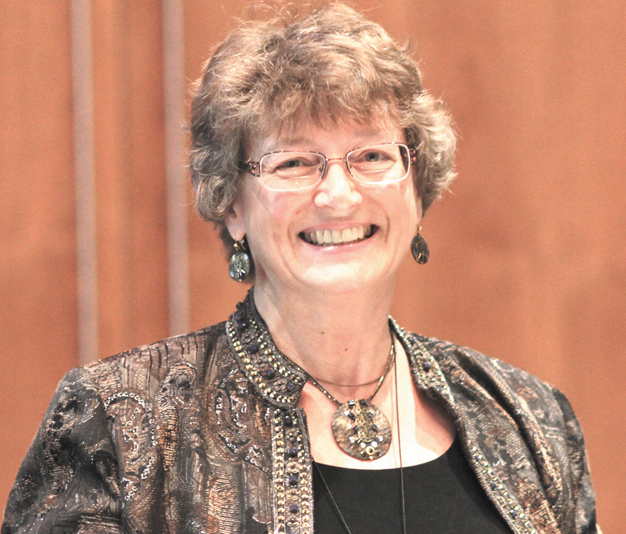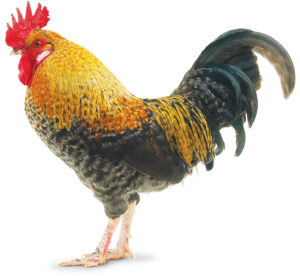The right and the good

The Power of Stories Series
Jewish Family Education with Candace R. Kwiatek, The Dayton Jewish Observer
A popular exhibit at one children’s museum is the recycling collection truck with its steering wheel, buzzers, and lever-induced sounds of a revving motor and compacting trash.
Once youngsters have claimed a seat there, it’s difficult to entice them to leave without bodily removal accompanied by kicking and wailing, much to the embarrassment of children and parents alike.
However, an unexpected scene played out recently when a grandmother reminded her grandson, “Other children would like a turn. It’s time to share.” His iron grip on the steering wheel, the youngster shook his head.
“That’s so unlike you,” the grandparent responded, with a deliberate puzzled lilt. “You’re a person who’s very good at sharing.” The child looked at the grandparent, then at the waiting children, and promptly got out of the truck.
The renowned psychiatrist and author Rabbi Abraham Twerski offers a similar story from his childhood. “When my father disapproved of something I did, he would say in Yiddish, ‘Es past nisht (That does not become you. It is beneath your dignity).’ I was not told that I was bad, but rather that what I did was inappropriate for someone as good as me.”
These stories suggest that when individuals err, a reminder of their better angels and aspirations preserves their dignity and identity as worthy beings in the image of God.
On the other hand, publicly highlighting another’s deficiencies either by word or deed provokes embarrassment or humiliation. A related study by psychological science researchers found that simply remembering a socially painful experience like public embarrassment triggers such an intense reliving of the event that complex thinking, perception, and language processing — core features of human identity — are stymied.
In Jewish thought, public embarrassment or humiliation of another person for any reason is considered a grievous transgression, described in rabbinic texts as akin to murder.
The prohibition itself is established in the Holiness Code of Leviticus, but illustrations can be found throughout the Bible.
Before revealing his identity to his brothers in Egypt, Joseph asked everyone from outside the family to leave the room. Despite his brothers’ earlier actions, he didn’t want to embarrass them in front of others. A similar circumstance took place in the story of Tamar and Judah.
To spare a transgressor from embarrassment, both the sin offering and the voluntary burnt offering for the Holy Temple were slaughtered in the same manner in the same public location.
The Torah even commanded that the Kohanim (priests) use a ramp when ascending to the Temple altar, not stairs that might cause the immodesty of uplifted priestly tunics. If this caution applies for inanimate stone stairs, which aren’t actually embarrassed, Rashi concludes, how much more so when it comes to another person.
“Morality is not just a set of rules…,” writes Rabbi Jonathan Sacks. “It is also about the way we respond to people as individuals.”
 The rooster prince. The king and queen were distraught. Deciding he was a rooster, their son had begun crowing and pecking at crumbs on the floor, fully naked! Although the king’s wise men had no suggestions, an old sage arrived at the palace one day claiming to have a cure.
The rooster prince. The king and queen were distraught. Deciding he was a rooster, their son had begun crowing and pecking at crumbs on the floor, fully naked! Although the king’s wise men had no suggestions, an old sage arrived at the palace one day claiming to have a cure.
Shortly thereafter, the prince and the sage pecked away under the table, clucking and crowing and talking together. “It’s good to live the life we like, isn’t it?” the sage observed wisely. The rooster prince crowed happily.
After some time, the sage requested a pair of pants from the royal seamstress. As he began putting them on, the rooster prince protested, “Chickens don’t wear pants!” The sage countered, “Why should humans have all the comfortable things?”
A few days later, the sage asked for a shirt. The rooster prince glared. “What?” asked the sage. “Why should I shiver just because I’m a chicken?” Soon the sage put on socks and shoes to protect his bruised feet. Not long after, the sage heard his stomach grumble and asked for a plate of food. The very next day the rooster prince asked for some pants, a shirt, shoes, and socks, and a plate of food, and was soon behaving like a human again.
The wine barrel. There was great excitement in Chelm upon hearing that the honorable mayor of Lublin would visit, but the inhabitants soon discovered a problem. What gift could such a poor town give the mayor to thank him for coming? A barrel of wine would be ideal, but too expensive.
The townsfolk went to see the rabbi, who suggested putting a barrel in the synagogue courtyard into which each family could pour just one jar of homemade wine. Delighted with the idea, Chelmers were soon observed adding to the barrel.
The mayor arrived to great fanfare and visited throughout the day. As he prepared to return home, the rabbi presented the town’s gift. Surprised and pleased, the mayor insisted on toasting l’chaim before setting off.
He took a big drink…and spit out plain, ordinary water. “You Chelmers have a wicked sense of humor,” he laughed amiably as he mounted his horse. “Wine indeed!”
When accusations began flying among the townsfolk, the rabbi held up his hands. “Let’s just make this right. Every family that wishes to do so will have another chance to add their wine to the empty barrel in the synagogue courtyard, and we’ll all deliver it to the mayor.”
Even if not explicitly stated, the Torah demands more than merely fulfilling specific commandments. “Ve’asita hayashar ve’hatov — Do what is right and good in the eyes of the Lord,” Moses teaches in Deuteronomy. This is the standard to which we must aspire: the standard of a holy people, the standard of a mensch.
Literature to share
The Museum of Lost Teeth by Elyssa Friedland. When Toothy notices he’s loose, he panics. What will happen now? And what does a museum have to do with teeth? This imaginative and delightfully illustrated tale for primary ages (and adults) is hilarious all while creatively teaching good health.
Picture in the Sand by Peter Blauner. A grandfather who has kept secret the story of his own life in Egypt at the time of the State of Israel’s birth. A grandson who is about to make the same mistakes by fighting in a holy war. Masterfully using email letters between Grandpa Ali and his disaffected American grandson Alex, Blauner draws the reader into a thoroughly engaging story. On the surface it’s a historical fiction thriller, but this novel is also a glimpse into mid-20th century moviemaking, Middle East history, a powerful character study, and a warning about the seductive power of fanatics of any stripe.
To read the complete August 2023 Dayton Jewish Observer, click here.


